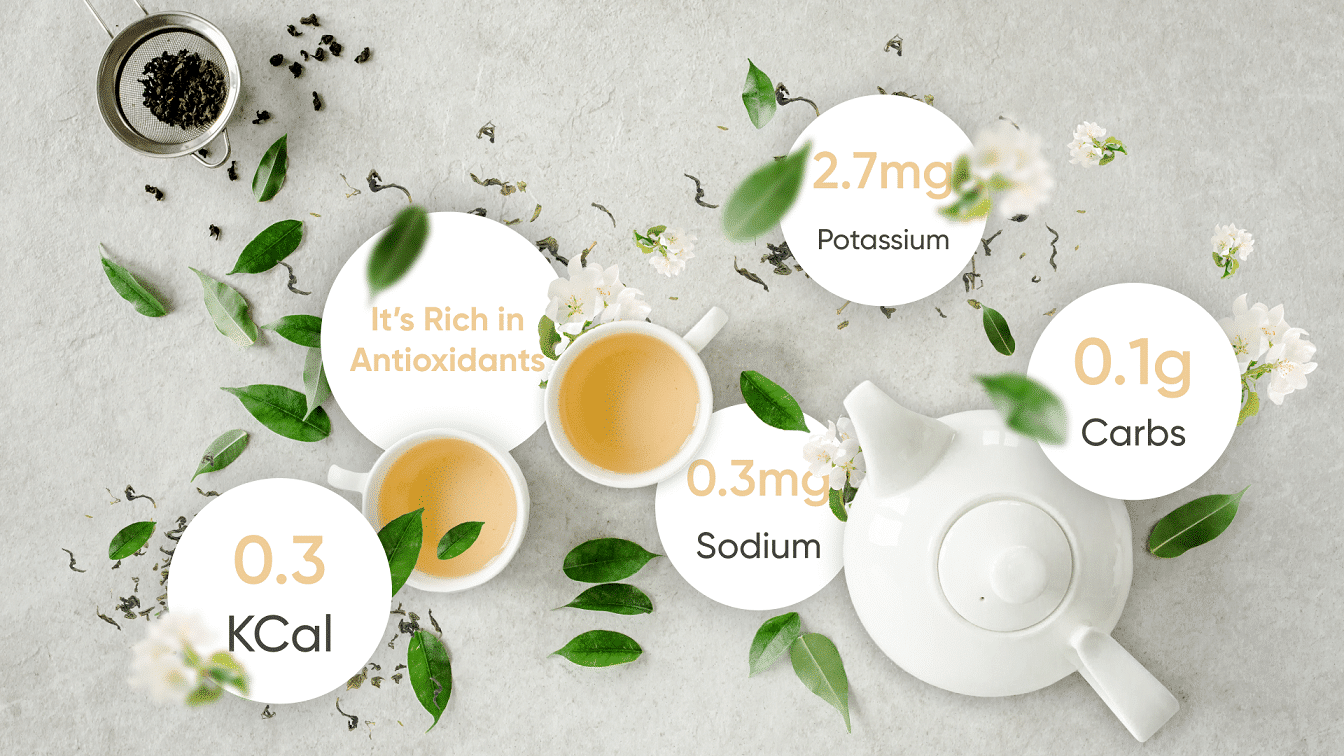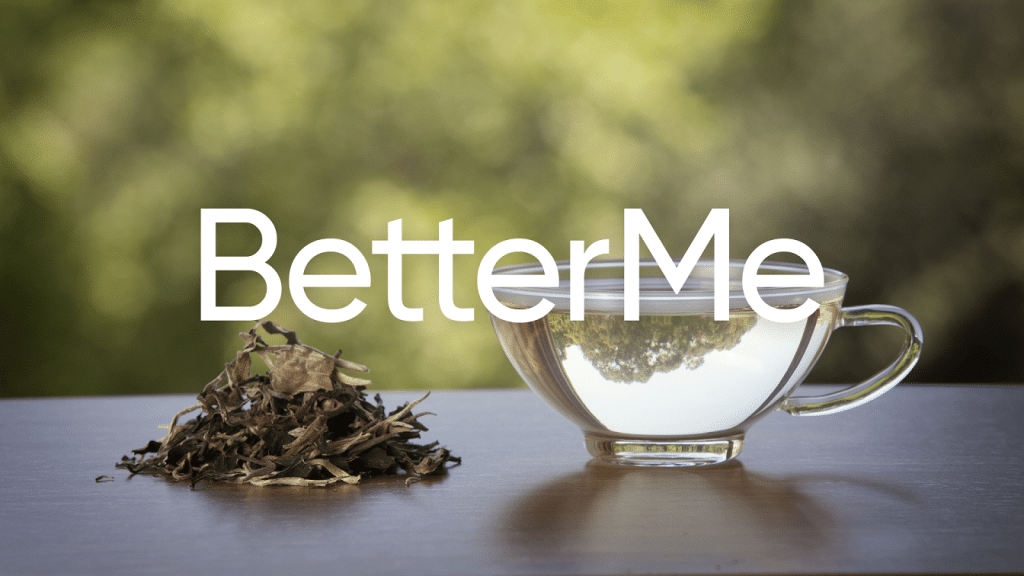White tea is one of the most popular types of tea. It has a very delicate taste, and only small amounts are needed to get its full flavor. This type of tea is made from young tea leaves that are harvested early in the spring before they have fully opened.
Just like green tea, it is made from the buds and young leaves of the Camellia sinensis plant. The color of white tea can range from silvery-white to green depending on how it is processed after being picked. It used to be so rare that it was reserved for Chinese emperors until the mid-20th century when production became more widespread in China.
Today, its rarity makes it one of the more expensive types of tea on the market, but its health benefits are worth the money. If you are looking to begin drinking more teas but want something milder than green tea, then here’s why white tea may be a great alternative.
White Tea Nutrition Facts
White tea is packed with antioxidants, which are compounds that fight aging and disease. It also contains vitamin C, but not as much as black or green teas. However, it does contain more than Oolong and Pu-erh teas.
Also, white tea has a very low amount of caffeine compared to other types of tea, just around 20 mg per cup. This makes it perfect for those who want the health benefits without as much of the stimulant properties of caffeine.
Since white tea is a product of the plant Camellia sinensis, it possesses similar properties to green and black teas. The main difference between white, green, oolong, black, and Pu-erh teas is the level of oxidation that occurs during processing.
In white tea production, fresh leaves are picked, steeped in low-temperature water, and then dried before further processing; this results in minimal oxidation and heat damage to the leaves (8).
The absence of heat during processing ensures that the polyphenol (catechins and flavonoids) levels remain high (15). This difference in processing results in higher levels of amino acids (L-theanine and L-phenylalanine) and lower caffeine content than other types of teas.
White Tea Health Benefits
Here we list ten impressive reasons why you should drink more white tea every day:
Helps Your Skin Stay Healthy
The antioxidants in white tea may help ward off early signs of aging while keeping skin and hair healthy. Antioxidants like EGCG (epigallocatechin gallate) help fight off free radicals that harm the skin, causing wrinkles and fine lines to form. These antioxidants can slow down or stop cell damage from ultraviolet (UV) radiation, keeping your skin glowing and young-looking (9).
Controls Blood Sugar Levels
Some studies have found that regularly drinking white tea improved symptoms for diabetic patients, including by improving blood glucose control (10).
Helps You Lose Weight By Curbing Your Appetite
White tea contains catechins, another type of antioxidant like those found in green tea. According to in vitro studies, these antioxidants may be able to help prevent fat storage by blocking the formation of new fat cells and breaking down existing ones. Catechins are also thought to suppress the appetite, which can help prevent overeating that adds extra pounds over time (1).
Read More: Matcha Green Tea With Turmeric Facts, Health Benefits And Side Effects
Helps Fight Bacteria And Viruses
The high amount of polyphenols in white tea may help fight off bacteria that cause infections (15). It can also help fight off viruses, reducing your risk of getting sick with a cold or flu if you drink it regularly throughout the year. Drinking hot white tea is thought to be even more effective at warding off infections caused by viruses or bacteria.
Has Fewer Caffeine Side Effects Than Coffee
If you have a sensitivity to caffeine, then switching from coffee to white tea can be a great substitute because it has a much lower amount of caffeine. Drinking less caffeine helps you avoid restlessness, insomnia, and anxiety that result from high caffeine consumption (13).
Has Antioxidants To Reduce Inflammation
Inflammation is the immune system’s way of protecting you from harmful stimuli like damaged cells or foreign invaders (bacteria, viruses). However, chronic inflammation due to stress or other lifestyle factors can be detrimental to your health. Drinking white tea can actually fight off some factors that cause inflammation because it contains polyphenols that have anti-inflammatory activity (4).
Helps Protect Your Heart From Disease
The antioxidants in white tea can reduce oxidative damage often associated with conditions like high blood pressure and cardiovascular disease. This may help prevent arteries from getting blocked by cholesterol-related plaque deposits that can lead to a heart attack (6).
A Great Source Of Vitamin C
One cup of white tea has about as much vitamin C as a kiwi fruit, which is an excellent source of this water-soluble vitamin. Your body uses up large amounts of vitamin C every day, so you need to drink enough fluids containing this nutrient throughout the day.
Vitamin C is necessary for making collagen found in bones, cartilage, muscle, and blood vessels. It also helps protect the immune system because it works as an antioxidant that prevents free radicals from harming cells (14).
Helps Prevent Tooth Decay And Gum Disease
Strengthen your teeth and help prevent gum disease by drinking a few cups of white tea daily. The anti-inflammatory properties of EGCG may help reduce your risk of periodontal diseases that lead to tooth loss (12).
Gives You Energy
If you are constantly tired or yawning throughout the day, drinking white tea can make you feel more energetic because it contains small amounts of caffeine that can boost physical and mental performance (2). The energy boost is often less intense than what you would get from coffee, so it comes with fewer side effects if you are sensitive to caffeine.
Is A Potent Remedy For Headaches And Migraines
White tea has a long history as a natural remedy for headaches due to its anti-inflammatory properties that can help reduce pain in your head after drinking even just a cup of this beverage. It also helps relax your muscles which eases tension stress more effectively than other beverages.
BetterMe app will provide you with a host of fat-frying fitness routines that’ll scare the extra pounds away and turn your body into a masterpiece! Get your life moving in the right direction with BetterMe!
White Tea Side Effects
Drinking white tea in moderation is considered very safe. However, there are many side effects associated with drinking too much of this beverage daily, including:
Side Effects Of Too Much Caffeine
Drinking white tea can make you feel more energetic, but if you drink too much of it daily, then it will become less effective because your body gets used to the caffeine. You may also end up with unpleasant side effects like jitteriness, restlessness, and irritability (13). Pregnant women in particular need to limit their caffeine consumption according to their doctor’s recommendations.
Side Effects Of Fluoride
Some types of tea are high in fluoride content, including green tea as well as white tea. Too much fluoride can lead to bone or joint problems, which is why experts recommend drinking no more than two cups per day (7).
Side Effects Of Tannins
If you drink too much white tea, it can lead to symptoms like nausea and vomiting because it contains higher levels of tannins (11). The symptoms usually go away after a few days once your body gets used to the LH levels of tannin in the tea.
Read More: Lavender Chamomile Tea Facts, Health Benefits And Side Effects
Side Effects Of Oxalic Acid
Tea leaves contain oxalic acid that can cause symptoms like kidney stones for particularly sensitive people (3). To reduce your risk for these symptoms, don’t drink more than 2 to 3 cups per day and avoid adding milk to your tea since calcium can bind with oxalic acid to form stones.
The Bottom Line
Drinking white tea is an excellent way to boost your health by reducing your risk for various diseases, giving you more energy, and protecting your teeth and gums. However, it’s important to drink the beverage in moderation since too much caffeine can lead to unpleasant side effects like jitteriness, restlessness, or irritability.
Get your personalized
meal plan!
DISCLAIMER:
This article is intended for general informational purposes only and does not address individual circumstances. It is not a substitute for professional advice or help and should not be relied on to make decisions of any kind. Any action you take upon the information presented in this article is strictly at your own risk and responsibility!
SOURCES:
- A Review on the Weight-Loss Effects of Oxidized Tea Polyphenols (2018, mdpi.com)
- Caffeine: Cognitive and Physical Performance Enhancer or Psychoactive Drug? (2014, ncbi.nlm.nih.gov)
- Calcium Kidney Stones (2010, nejm.org)
- Health Benefits of Tea (2011, ncbi.nlm.nih.gov)
- Inflammatory responses and inflammation-associated diseases in organs (2017, ncbi.nlm.nih.gov)
- Plant polyph`enols in prevention of heart disease (2012, pubmed.ncbi.nlm.nih.gov)
- Progressive Research in the Molecular Mechanisms of Chronic Fluorosis (2019, intechopen.com)
- Quantification of total polyphenols, catechin, caffeine, L-theanine, determination of antioxidant activity and effect on antileishmanial drugs of ethiopian tea leaves extracts (2015, ncbi.nlm.nih.gov)
- Skin Protective Effect of Epigallocatechin Gallate (2018, mdpi.com)
- Studies on tea and health (2011, pubmed.ncbi.nlm.nih.gov)
- Tannin – An Overview (n.d., sciencedirect.com)
- The Influence of Diet on Oxidative Stress and Inflammation Induced by Bacterial Biofilms in the Human Oral Cavity (2021, mdpi.com)
- The Safety of Ingested Caffeine: A Comprehensive Review (2017, frontiersin.org)
- Vitamin C in Disease Prevention and Cure: An Overview (2013, ncbi.nlm.nih.gov)
- White Tea (Camellia Sinensis (L.)): Antioxidant Properties And Beneficial Health Effects (2013, scidoc.org)













